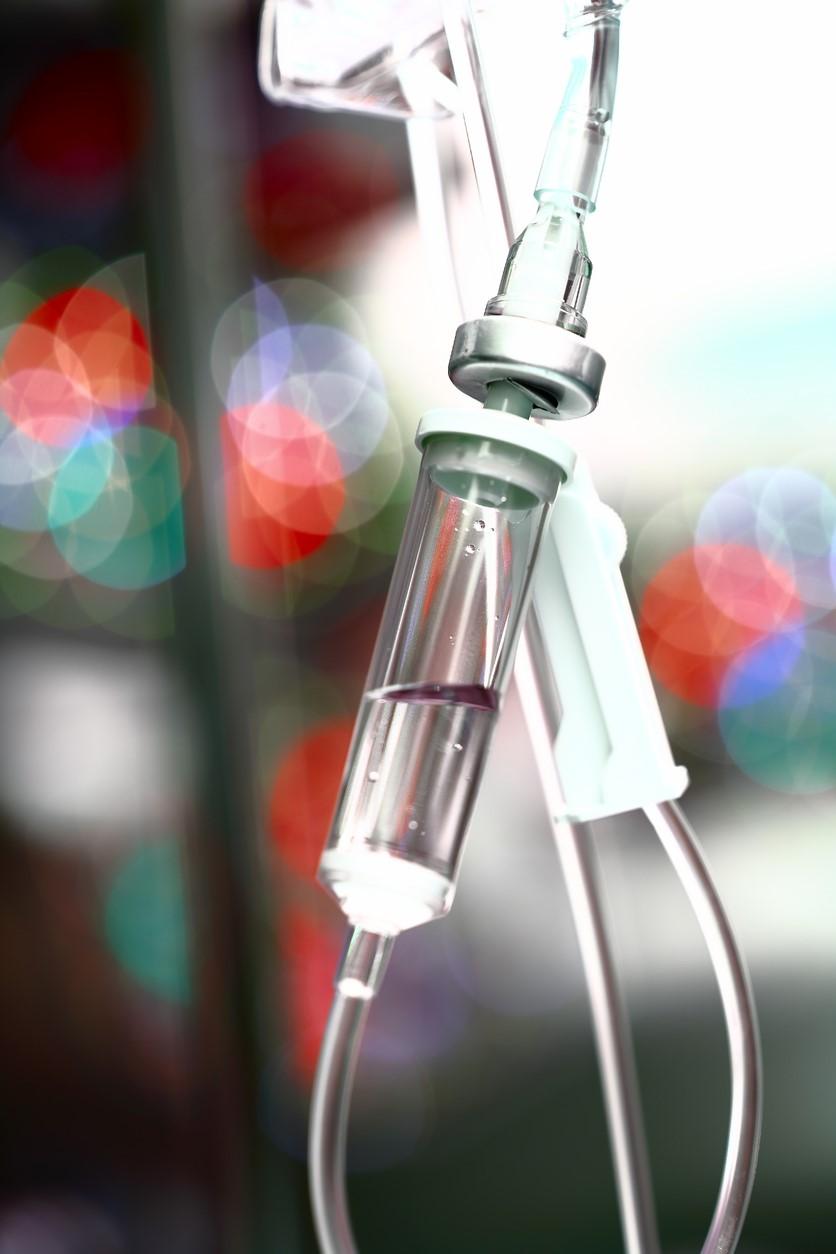Results from an ongoing phase 3 study published yesterday in the New England Journal of Medicine showed no significant difference in the clinical status of hospitalized COVID-19 patients not requiring mechanical ventilation after a 5-day course of the antiviral drug remdesivir compared with patients who had a 10-day course.
But the randomized, open-label trial lacked a placebo control, so the degree of benefit could not be determined.
Sponsored by remdesivir maker Gilead, the trial took place at 55 hospitals in the United States, Asia, and Europe from Mar 6 to 26. Investigators randomly assigned 397 coronavirus patients with an oxygen saturation of 94% or less and radiologic evidence of pneumonia to receive intravenous remdesivir, with a 200-milligram (mg) loading dose followed by 100 mg daily, for the next 4 or 9 days.
No significant difference in outcomes
At baseline, the 197 patients in the 10-day group had significantly more severe illness than the 200 patients in the 5-day group (P = 0.02). The 10-day group also had 9 patients receiving mechanical ventilation (versus 4) and a higher proportion of men (68% versus 60%), who tend to have worse COVID-19 outcomes.
Fourteen days later, 65% of patients in the 5-day group had a clinical improvement of 2 or more points on a 7-point ordinal scale, compared with 54% in the 10-day group. But after adjusting for baseline status, the two groups were not significantly different (P = 0.14).
Adverse events occurred at similar rates in both groups: 70% in the 5-day group and 74% in the 10-day group. The most common side effects included nausea (9%); worsening respiratory failure (8%); elevated alanine aminotransferase level, indicating liver damage (7%); and constipation (7%). Overall, 21% of patients in the 5-day group and 35% in the 10-day group had serious adverse events.
In the 5-day group, 4% of patients stopped treatment because of adverse events, versus 10% in the 10-day group. Adjusting for baseline clinical status revealed that only serious adverse events were different between the two groups, the most common of which in the 10-day group were acute respiratory failure (9% versus 5%) and respiratory failure (5% versus 2%).
After 14 days, 16 patients (8%) in the 5-day group and 21 patients (11%) in the 10-day group had died, and 120 (60%) and 103 (52%), respectively, had been released from the hospital. Median length of hospital stay among patients released within 14 days was 7 days for the 5-day treatment group and 8 days for the 10-day group.
Ten of 25 patients (40%) in the 5-day group receiving mechanical ventilation or extracorporeal membrane oxygenation (oxygen infusion to the blood outside the body) at day 5 had died by day 14, versus 7 of 41 (17%) of the 10-day group.
Rates of hospital release were higher among patients who had been symptomatic for less than 10 days before receiving the first dose of remdesivir (62%) than among those symptomatic for longer before receiving the first dose (49%).
Median days to recovery were 10 in the 5-day group and 11 in the 10-day group.
Shorter course could conserve supplies
In a post hoc analysis to determine whether another 5 days of remdesivir treatment would have benefitted any patient subgroup, the investigators found that it did not appear to lead to better outcomes.
Factors associated with a shorter recovery time included age under 65 years, black or white race, no requirement for mechanical ventilation or a biologic drug, and enrollment outside of Italy.
The authors caution that their findings can't be extrapolated to patients on mechanical ventilation, because so few of their subjects were receiving this form of therapy before starting remdesivir.
"Our trial suggests that if remdesivir truly is an active agent, supplies that are likely to be limited can be conserved with shorter durations of therapy," the authors wrote. "Patients who progress to mechanical ventilation may benefit from 10 days of remdesivir treatment; further evaluation of this subgroup and of other high-risk groups, such as immunocompromised persons, is needed to determine the shortest effective duration of therapy."
In a commentary in the same journal, Raphael Dolin, MD, of the Center for Virology and Vaccine Research in Boston and Martin S. Hirsch, MD, of the Ragon Institute and Harvard Medical School in Cambridge, Massachusetts, said that measurement of SARS-CoV-2 (the virus that causes COVID-19) loads collected during the study could improve understanding of the mechanisms of remdesivir and guide use and timing of treatment with antiviral drugs.
"The report from Beigel et al. shows that remdesivir provides moderate clinical benefit in the treatment of patients with Covid-19," they wrote. "The initial findings are a step forward on the road to developing effective therapy for SARS-CoV-2 infections and, as such, are an important advance."






















